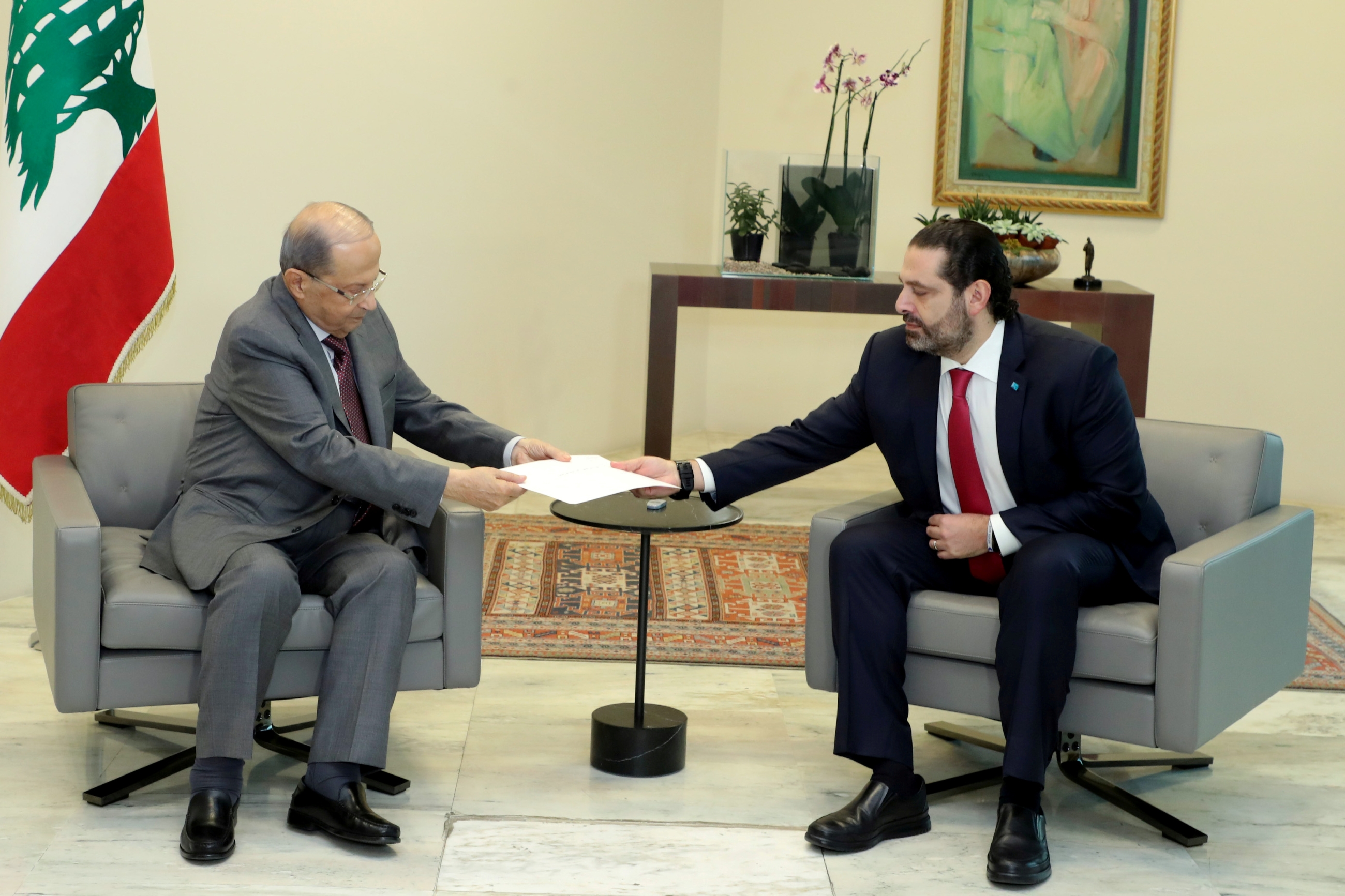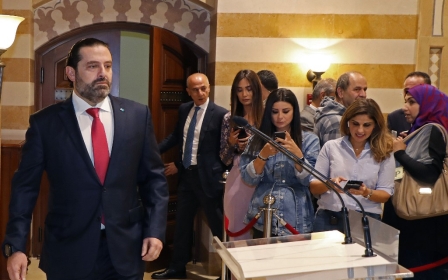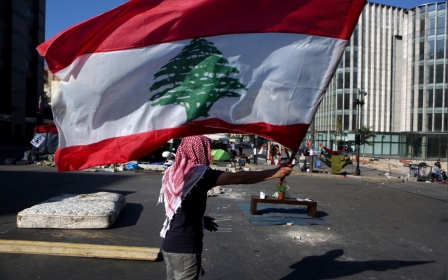Lebanon's Aoun calls for new government of experts

Lebanese President Michel Aoun called for a new government of experts in his second speech since the beginning of protests demanding the eviction from power of the country's ruling class.
His speech late on Thursday comes two days after Prime Minister Saad Hariri submitted his resignation in response to the ongoing demonstrations.
The Lebanese president is set to begin a parliamentary consultation to choose a new prime minister who would then form a cabinet to replace Hariri's.
"The new ministers must be chosen according to their expertise and experience, not political loyalties," Aoun said in his televised address on Thursday.
New MEE newsletter: Jerusalem Dispatch
Sign up to get the latest insights and analysis on Israel-Palestine, alongside Turkey Unpacked and other MEE newsletters
Hariri's cabinet, which came to power after last year's parliamentary elections, included members of most major political parties in Lebanon.
Aoun said putting political priorities ahead of technical ones undermined the ministers' ability to take "some necessary decisions".
"Today, we are on the cusp of a new government," he said.
"The only priority this time is for the government to meet the aspirations of the Lebanese people and gain their trust, then the trust for their representatives in the parliament."
Aoun struck a defiant tone in his speech, defending his three years in power.
He listed the "achievements" of his presidency, starting with fighting "terrorism" - referring to battles in east Lebanon against militant groups, including the Islamic State (IS) group.
Nayla Saba, a 42-year-old demonstrator in Beirut, said the president's speech showed a "total disconnect" from the protesters' demands.
"Are you trying to tell us that you've done a good job over the past three years? If you'd done a good job, nobody would be in the streets now," Saba told Middle East Eye.
'I will proceed', Aoun says
The Lebanese president said he has been working to return displaced Syrians to their country, bemoaning the "sustained efforts to keep refugees where they are".
Lebanon hosts more than one million Syrian refugees, but rights groups have warned that Syrians should not be forced to return to their country, where they may face persecution by the government.
Thousands of Lebanese citizens have protested across the country over the past weeks to demand a transitional government that would end corruption and avert a potential economic collapse.
'Are you trying to tell us that you've done a good job over the past three years? If you've done a good job, nobody would be in the streets now'
- Nayla Saba, protester
The demonstrations started on 17 October after the government announced a small tax on internet-powered voice cell phone applications including WhatsApp.
The unrest has since moved beyond the so-called WhatsApp tax, which has been scrapped, and the demonstrators are calling for a state free of sectarianism and corruption.
The protesters have also called for Aoun's resignation.
But the president on Thursday vowed to remain in power, saying: "No matter how difficult the road, I will proceed on it".
Aoun urged lawmakers to pass laws that would make public the bank statements of current and former officials, as well as establish an anti-corruption commission.
The president also saluted the protesters, saying that he stands with them in demanding an end to sectarianism.
Middle East Eye delivers independent and unrivalled coverage and analysis of the Middle East, North Africa and beyond. To learn more about republishing this content and the associated fees, please fill out this form. More about MEE can be found here.





